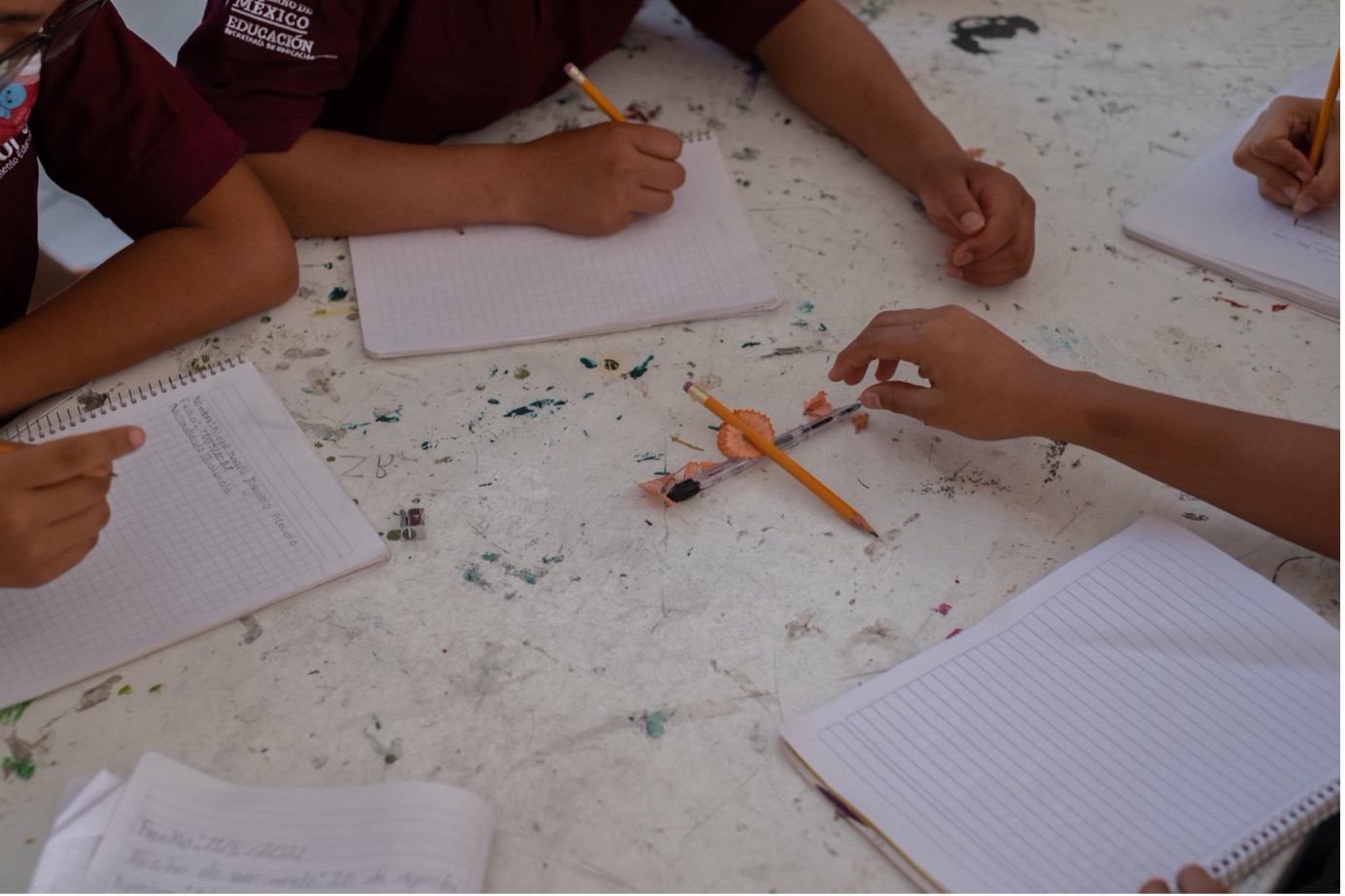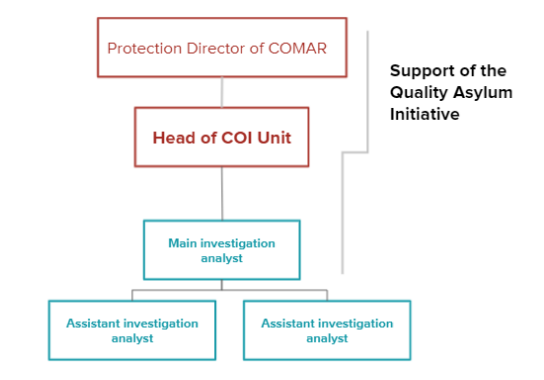
Mexico. A group of young girls draw during a class ©UNHCR/Jeoffrey Guillemard
Snapshot
Entities sharing this good practice: Mexican Commission for Refugee Assistance (COMAR)
Submitted by: Mexican Commission for Refugee Assistance (COMAR)
Key stakeholders: UNHCR Mexico, QAI Initiative, RACBI
Visit their website: https://www.gob.mx/comar
In July 2020, a Country of Origin Information Unit (hereinafter U-COI) within the Protection and Return Directorate of the Mexican Commission for Refugee Assistance (COMAR) was created with the aim of supporting protection officers in the refugee status determination (RSD) procedure and facilitate decision making. For its creation, it had the support of the Quality Asylum Initiative (QAI).
The U-COI was created based on the international good practices of other States, within the framework of the Regional Asylum Capacity-Building Initiative (RACBI) and seeks to institutionalize the research of COI information, the homogenization of the eligibility criteria applied, as well as the development of tools for the determination of refugee status.
Specific functions assigned to the unit include a) researching and compiling COI information; b) developing RSD toolkits for the countries with the highest incidence of applications in Mexico; c) standardizing eligibility criteria both in interviews and decisions; and d) carrying out, coordinating and executing trainings concerning COI and RSD, with emphasis on the country toolkits.
The structure of the COI Unit in Mexico as of second semester 2021:

The quality standards of the U-COI are based on the Methodological Manual prepared by COMAR, the Government of Canada and UNHCR, in 2018.
Activities
Following its specific functions, the activities of the U-COI are the following:
- Update and compilation of COI
- Individual consultations: Response to specific inquiries from protection officers. Although the main responsibility for seeking information remains with the officer, the U-COI supports the expansion of research, with specific information that has not been easily accessible and, eventually, with the translation of certain documents that are in other languages.
- Trainings: This includes:-
- On the job training that includes weekly case discussions
- Other COI and RSD trainings. The U-COI is the focal point for all inductions received by new RSD staff and RSD trainings at the national level (COI, information packages, inclusion analysis, exclusion analysis, interview techniques and others).
- Trainer of trainers (ToT): support the training of trainers within the representation offices, in conjunction with RACBI, UNHCR and QAI, who, in turn, will be able to perform training functions in the future.
- Development and updating of RSD documents and tools.
- Monitoring of developed tools. Follow-up, monitoring, support, and review of the material.
- Shadowing of interviews and quality analysis of decisions. The objective is to monitor the quality of the interviews, through shadowing, as well as to analyze the quality of the decisions. Shadowing includes, in addition to the work of the protection officer, the work of interpreters. In addition to this, are on the job training sessions especially dedicated to the role of the protection officer and the interpreter and the interaction between them during the interview.
- Creation of communication channels and exchange of good practices with other organizations linked to COI: Foreign Ministry, Universities (to support students in COI investigations) and other countries.
- Other activities, such as a Support Plan for the COMAR Representation Offices; the COI Storage Platform Project; mailing list of officers and monthly summary of updated COI information.
Impact of the good practice
- The facilitation of 14 sessions of on the job training (every Friday between the months of July to October), for 56 protection officers.
- The delivery of toolkits with risk profiles, profiles and template decision and interview guides.
- The presentation of a remote interview manual for the standardization of this modality of procedure at the national level.
- Responses to regular COI inquiries and individual cases by protection officers.
Challenges
- Strengthen U-COI staff to broaden its scope (e.g. answer individual inquiries more effectively)
- Guide the operations of the unit towards prioritizing the research activity.
- Monitor the use of tools and the use of the COI to ensure that they are applied in a homogeneous way.
- The creation of the U-COI was possible thanks to the technical support of the RACBI Group and the QAI.
- Its first products were of vital importance for the development of other initiatives and tools to strengthen the RSD procedure.

Recent Comments